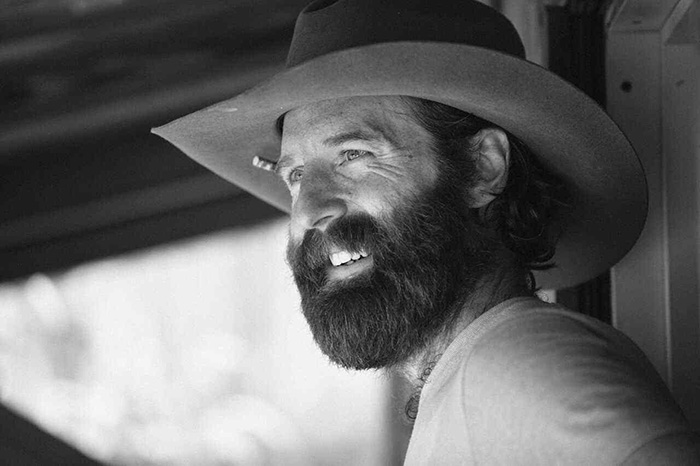By SEAN DIETRICH
She has long red hair. Fair complexion. A high school senior. Quiet. Mild-mannered. When she speaks, her voice sounds like Locust Fork, Alabama.
Her name is Morgan. Seated beside her is Clarabelle, a black Labrador wearing a Service Dog Alabama vest.
Morgan has paralysis on the left side of her body; her left hand doesn’t work. She has frequent seizures, and she is sensitive to light. She has diabetes. She has low vision, and is nearly blind in one eye. Her intestines are paralyzed, too, so digestion is an issue. A day in the life of Morgan is no walk on the beach.
Her health issues stem from a previous bout with encephalitis (brain swelling). The encephalitis complications should have killed her. But they didn’t.
“Took me six months to learn to walk again,” she said. “But I knew I could do it. I believed I could.”
She’s a tough cookie. Morgan practically grew up in Children’s Hospital, in Birmingham. Her youth was nothing like the average American childhood. While most kids were busy playing in their backyard sprinklers, eating Flintstone Push Ups, Morgan was in a hospital room, relearning how to walk.
Her mother remained at her bedside. When Morgan was too paralyzed to feed herself or hold her head upright, nurses did these things for her.
“My happiest childhood memories are at Children’s Hospital. Those people love me.”
In her teenage years, things have gotten even tougher. What she misses most is her independence. When you deal with the medical trials Morgan deals with, you’re always under supervision. This gets old, fast.
“I couldn’t do anything on my own,” she said. “Couldn’t even walk the school hallway without nurses hovering around me, waiting for me to have a seizure.”
Morgan wouldn’t sleep by herself, for fear a nighttime seizure would kill her. She wouldn’t eat by herself, for fear that she would choke. She couldn’t drink a bottle of water without someone nearby.
“I was always afraid. Always.”
But her story has a good ending, in as much as Morgan isn’t afraid anymore. Not even a little bit. Because now she has Clarabelle.
Enter Clarabelle. You’re looking at 65 pounds of pure black Lab, seated beside Morgan, wearing a bone-serious face. The dog glances at me now and then, but the animal makes it clear, she’s not here to mess around.
Clarabelle is working. She is constantly monitoring Morgan’s physical body, ready to alert for an oncoming seizure.
“Before Clarabelle, I had no independence. I couldn’t even go to the bathroom by myself. Now, I do everything by myself. I’m a regular kid … sorta.”
Thanks to Service Dogs Alabama, Morgan is independent. To prove it, next semester, Morgan is going away to college. She will be a freshman at UAB. Morgan will live on her own. She will do everything on her own.
Morgan will live the obligatory college life. She will do all things ordinary college kids do: She will spend hours creating TikToks, listen to loud music, eat too much junk food, and waste entire years of her life learning about the cosine.
Meantime, Clarabelle will continue to do her job. She will alert before Morgan has a seizure. She will help Morgan off the ground after seizures. She will help Morgan walk if need be. Clarabelle even helps Morgan get dressed.
“Clarabelle is my everything. We’re so tight. She totally feels it when I’m suffering. We’re that close.
“One time, I couldn’t breathe, and they thought I was dying. The ambulance came. But Clarabelle wasn’t allowed to be with me when I was with the paramedics. So she was freaking out and barking. Because she considers me her baby.”
When Clarabelle finally reunited with Morgan in the hospital, Morgan was intubated, attached to a ventilator. It was a hard sight to see. But nobody took it harder than Clarabelle.
“Clarabelle got so upset when she saw me on that breathing machine, she started puking and crying. Then, she jumped up in my bed, laid her body on me. Nobody could get her off. She wouldn’t even leave me to go pee. I am her child.”
I ask Morgan what it’s like having a service dog wherever she goes.
“Well, before Clarabelle, I was so scared. Nobody understood me. Nobody could relate to what I was going through. I was friendless and alone. Clarabelle saved me. Clarabelle gave me back my life. I wish more people knew how great she is.”
I’ll tell as many as I can, Morgan.

